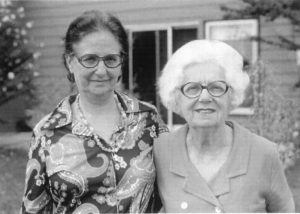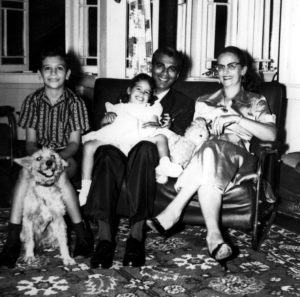By Janet Jagan

My mother died at the age of 95, some 5,000 miles away. She was very old and had lived a long and useful life. I remember her for what she gave me, rich gifts which I have cherished my lifetime.
She taught me hard work and honesty, honesty at all costs, no in-betweens or half-ways. She taught me these qualities by her own conduct and what I suppose were disciplinary measures, which I can no longer recall.
What I recall of my childhood in Chicago, U.S.A., was a happy one; a quiet household of my mother, father, bother and myself; few conflicts; no shouting; no beatings, maybe an occasional spanking and, above all, harmony between my parents.
Early in life I learned from my parents that life is not easy; that one has to work hard to achieve one’s goals; that school is serious business and that there is a time for play and a time for work.
My mother, though with only a limited education, had skills which carried her right into her old age. Her hands could do almost everything but most of all, sew, knit and crochet; she made beautiful and useful things.

During the terrible depression of the 1920s and 30s in America, when unemployment was excessively high, my father joined the ranks. Jobs were impossible to find. My mother took in sewing jobs at home and helped us survive, along with her frugal use of what we had. But even this does not show what kind of a mother I had and lost just recently. Maybe this example portrays her relationship with people, which was of an outstandingly warm quality.
Shortly before her own death, her friend of 80 years died. Imagine, a friendship lasting 80 years! My mother told me how she sewed this friend’s wedding dress sometime around World War 1.
Mothers, as women know so well, are mostly the centre of life in families; they set the standards of life and the qualities they expect in their children.
Those of us who have had the good fortune to have good mothers can surely be called fortunate. (Copyright: Nadira Jagan-Brancier, 2009)



